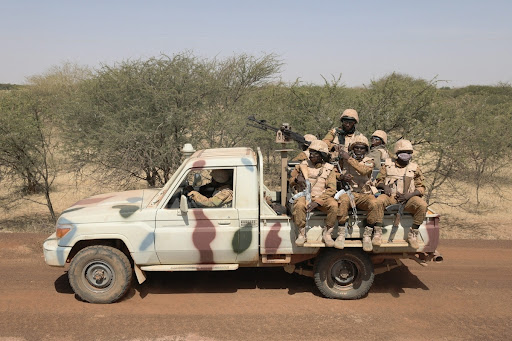Climate Change, Poor Education, Governance Gaps Driving Conflict In The Sahel
A new study of the conflict currently tearing through the central Sahel region has identified resource scarcity, perceived injustices, and the growing need for self-defence as some of the drivers.

Since the beginning of the armed insurgencies in May 2012 in what has been described as the central Sahel — Mali, Burkina Faso, and Niger, there have been a series of attempts to understand the causes of the violence.
A crisis of governance, climate change, poor literacy rates, and porous border security are some of the key drivers, according to international affairs think tank Middle East Institute (MEI).
“Reversing the spiral of insecurity and violence in the central Sahel requires that states demonstrate their usefulness as providers of security and impartial justice,” MEI says in its latest report.
The two prominent jihadi groups in the region are the Islamic State in the Greater Sahara (ISGS) and Jama’at Nasr al-Islam wal Muslimin (JNIM), both of whom are struggling for supremacy.
Misgovernance and the failure of state policies are believed to be partly responsible for the crisis. Communities unable to get the government to address their challenges were pushed toward self-help, a situation that developed into a conflict that has left more than two million people displaced so far.
One of those caught in the middle of this conflict are herders. In the region, pastoralists do not only rear cattle for economic gain but also see it as an indispensable part of their nomadic culture.
In Burkina Faso, the setting up of banana plantations, cotton fields, and cashew and mango tree groves on watercourses sabotaged livestock farming. This increased rifts between migrants from the northern part of the country and the herders.
Schooling systems which favour sedentary communities are not helping as they deprive herder households of education. This results not only in high rates of illiteracy but also poor representation in decision-making bodies. Policies that affect them as a result are made by those who may not understand their way of life, thus increasing animosity between the herders and the ruling elites.
“Indeed, since colonial times, nomadic herders’ interests had rarely featured prominently in public policies, particularly those that apply to agricultural and environmental projects. Worse, even when laws and regulations were made to safeguard pastoralists’ property rights, they were undermined by local authorities and sedentary village chiefs,” the think tank said.
The devastating effects of climate change that brought about unpredictable rainfall patterns, droughts, and migration are another factor. Movements by pastoralists seeking pasture and water tend to trigger competition over resources and conflict.
Shrinking land, forage, and water resources increase the herders’ grievances against those they blame for their predicament. As a survival mechanism, some began joining armed groups like the Movement for the Unity of Jihad in West Africa (MUJAO).
“The droughts of the 1970s and 1980s, combined with the growing irregularity of seasons, caused the drying up of ponds and watercourses as well as fodder scarcity, leading to the decimation of livestock,” the report said.
“As a result, herders had to migrate south while others had to sell their livestock at a loss to agropastoralists, farmers, and other ‘new breeders,’ including soldiers, government officials, and businessmen, who then employed them as shepherds.”
Again, the Sahel is home to some of the poorest countries in the world, many of which are also facing overpopulation. Many young people have been found to join insurgent groups because of poor economic conditions. After becoming members, they receive military training and get access to weapons, which help them to get by.
Insurgents, especially members of Al-Qaeda in the Islamic Maghreb (AQIM), have been found to be involved in drug trafficking too, proceeds from which they use to fund their activities and purchase more weapons.
MEI points out that a need for defence, revenge against perceived injustices meted against them, or having leverage in the struggle for scarce resources have also fuelled violence in the central Sahel.
For instance, in 2019, a Mossi chief and his son were killed in Burkina Faso. As retaliation, 200 Fulani herders were killed by members of the Koglweogo, a Burkinabe self-defence armed group.
“Such atrocities drove several Fulani herders desirous to exact revenge on the Mossi populations (the main ethnic group in Burkina Faso), whom they blamed for supporting the massacres, to join VEGs [violent extremist groups],” MEI noted. “This cycle of revenge and retaliation took place in other Sahelian theaters marked by worsening ethnic polarisation, further facilitating VEGs’ reach into new areas.”
Support Our Journalism
There are millions of ordinary people affected by conflict in Africa whose stories are missing in the mainstream media. HumAngle is determined to tell those challenging and under-reported stories, hoping that the people impacted by these conflicts will find the safety and security they deserve.
To ensure that we continue to provide public service coverage, we have a small favour to ask you. We want you to be part of our journalistic endeavour by contributing a token to us.
Your donation will further promote a robust, free, and independent media.
Donate HereStay Closer To The Stories That Matter




